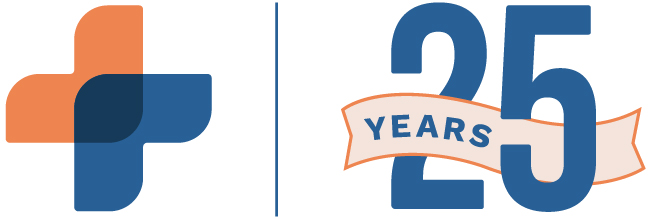EHRs have been the butt of jokes since their inception, in 2015 inspiring Dr. Zubin Damania—a.k.a. ZDoggMD—to create the parody “EHR State of Mind” to air out his frustrations about Electronic Medical Records (EMR) platforms everywhere.
It’s no wonder that Electronic Health Record (EHR) software gets a bad rap. Despite being used by almost 90% of office-based physicians, usability and interoperability issues have long been prevalent. In fact, according to a 2022 study, physicians spend an average of 4.5 hours per workday in their EMR system, leaving some to question whether that’s time well spent.
Luckily, your average EHR/EMR software has come a long way since the 2015 parody of Jay-Z’s “Empire State Of Mind.” With plenty of UX/UI improvements for usability, plus interoperability standards now set by government regulations with the 21st Century Cures Act, there are significant advantages to EHR/EMRs in 2023 and beyond. Reduced administration, more efficient workflows, increased security, and enhanced patient health, to name a few. When you consider all the ways an EHR can elevate your practice, you may see your software in a new light.
What Are the 5 Biggest Advantages of Using an EHR in Healthcare?
The most effective way to reap the benefits of EHRs is to select the right vendor for your needs (more on that below). Before we examine what criteria to look for in an Electronic Health Records system, here are some of the biggest advantages that healthcare providers and administrators can expect from quality software:
EHR Advantage #1: Better quality patient time.
Despite the trope that EHRs force doctors to see their computer instead of actually seeing their patient, there are obvious benefits for their use. For example, immediate access to patient health history and vitals helps optimize the precious time frame allocated for patient visits. Online intake forms fed directly to Patient Portals offer the opportunity to review a patient’s issues before the visit, giving physicians a head start on diagnosing and making treatment recommendations. The same goes for lab orders and diagnostic procedures that are sent electronically directly to and from the EHR. Patient details such as medications, allergies, and other ongoing specialty treatments are all viewable from your EHR, avoiding any conflicting care instructions. Being able to view a patient’s overall health at the point of care paints a more accurate picture and, as a result, promotes better outcomes according to 63% of respondents in a Stanford Medicine study.
EHR Advantage #2: More streamlined workflows.
On average, a clinician spends just over 16 minutes per encounter in the EHR (though the distribution of time varies widely by specialty). In the five years since this 2018 study, a number of improvements have been made to optimize EHR systems. Once a clinician has mastered the technology, an EHR can actually save time with tools like voice dictation, drop-down menus, checkboxes, Short Keys, and Macros to reduce keystrokes. Beyond that, custom forms and templates can be designed specifically for your specialty to make charting faster. Prior authorizations for treatments and prescriptions are managed electronically and automatically. And with complete patient more information available within the EHR, time spent “chasing charts” and clearing care gaps is mitigated.
EHR Advantage #3: Increased interoperability and data exchange.
Every day, EHR software and technology is pushing closer to a national standard for information-sharing. The final rule of the 21st Century Cures Act—effective June 2020 with more regulatory dates coming through 2023—outlines interoperability requirements in which all electronically-accessible health information can be acquired and exchanged without any special effort for the users. Enhanced interoperability will also make it easier for patients to access and share their healthcare data with all of their providers. Thanks to standards already set by the Office of the National Coordinator for Health Information Technology (ONC), EHRs can facilitate easier provider-to-provider communication (thanks to USCDI efforts to standardize data sets), specialist referrals, lab orders, and electronic prescribing. The Cures Act keeps the patient at the center of healthcare, so health information technology (HealthIT) vendors can:
- Help both patients and providers make better, more informed care decisions
- Enable patient research, analysis, and selection of doctors and care options
- Provide convenient, easy patient access to more complete health information via mobile and desktop programs
EHR Advantage #4: Financially rewarding.
One of the biggest advantages of a connected EHR or EMR system is the ability to connect directly to other systems. With the right vendor, your software can enable a more efficient process to create accurate, comprehensive claims for billing. Whether you outsource your medical billing with a third-party managed billing service, or use integrated in-house billing software to take ownership of the process, an integrated Electronic Health Records platform can improve that process. In a 2017 study, 83% of small to medium-sized practitioners said that slow payments are their top practice challenge. With the right EHR, charts are easily pulled directly into a billing system for submission to payers, for faster reimbursement and fewer denials. Your EHR can also help prepare reports to satisfy MIPS/Meaningful Use requirements and achieve incentives (or avoid penalties) established by the Centers for Medicare and Medicaid Services (CMS).
EHR Advantage #5: Reduced risks.
To receive CMS incentives, physicians and medical professionals must use EHR software that is on the Office of the National Coordinator for Health Information Technology (ONC)’s Certified Health IT Product List (CHPL), a certification program that mandates criteria for security, performance, and interoperability. Finding a software platform that is certified by an ONC-ACB, by Surescripts, for EPCS, and is HIPAA-compliant gives practices confidence about its quality. Cloud-based EHRs offer greater security against cyber attacks and better redundancy in case of disaster, if necessary; “Failed in-house servers come with costly replacements, significant downtime, and data losses. This interruption in workflow comes at a high cost to healthcare organizations and patients by throwing off timelines, and increasing care delays and reimbursement time. At worst, it also means the loss of valuable patient information.” Beyond that, easily-accessible, comprehensive recordkeeping and documentation is less likely to result in errors and mistakes, so you’re better protected against possible malpractice claims.
Do EHR Advantages Improve Quality of Care for Patients?
According to HealthIT.gov research, 75% of healthcare providers believe their Electronic Health Records software helps them deliver better care to patients. With more efficient workflows in hand for quick documentation plus improved interoperability, providers can more easily access up-to-date, accurate patient information. Meanwhile, patients get easier access to their records without having to request a copy or chase down their information from disparate systems.
Organizations like Pew are shifting “focus to improving public health data” and are already helping increase the accuracy of EHR record-keeping and promote data sharing to improve patient safety and delivery of care. Similarly, the ONC has developed best practices and recommendations to support the further advancement of EHR systems, while CMS includes patient safety measures related to EHR in its hospital and physician payment programs. These efforts help push EHR systems forward and ensure they rise to meet changing patient needs.
Why Do Healthcare Providers Love RXNT’s EHR Software?
If you’re in search of the “right” EHR vendor that meets your needs, RXNT’s suite of clinical software is designed with healthcare providers like you in mind. These are just a few of the advantages our Electronic Health Records (EHR) platform offers:
- Efficient, customizable charting with thousands of encounter Smart Forms designed for any specialty, and handy encounter Macros and Short Keys for quicker charting.
- Comply with EPCS mandates at the state and federal level with fully-integrated E-Prescribing.
- Save time in the waiting room for you and your patients with online in-take forms that can be completed anywhere.
- Support safe and convenient office visits from anywhere with telehealth-friendly workflows.
- Meet patient expectations with a desktop and mobile Patient Portal—patient-provider messaging, document and form management, online bill payments, and easy appointment scheduling.
- MIPS-ready reporting for Promoting Interoperability and Quality measures.
- Certified and secure for ONC-ACB, Surescripts, EPCS, and HIPAA. Applications and data hosted on SOC-2 Type II certified data center(s).
- Transparent pricing with no additional costs for 24/7 cloud-based access, implementation, data imports, regular upgrades, ongoing training and support, or mobile applications.
Here’s what physicians like Karen Casseday, MN, PMHP-BC, ARNP of KC Family Hope Center have to say about RXNT’s Electronic Health Records platform:
“It feels like RXNT was made for our practice…like RXNT is customizing
the solution just for us. The system is very user-friendly.”
See how Casseday reduced time on administrative tasks and significantly increased patient visits by 300% per week.





